Whether you’re a contractor needing specialized tools for a short-term project, a small business owner hunting for shared commercial kitchen space, or a family setting up the perfect large-scale event, the rental market caters to diverse needs. However, to ensure a smooth and hassle-free experience, a well-defined rental agreement is essential.
A Contract for Clarity and Confidence
A rental agreement is a legally binding document that outlines the terms and conditions for renting a specific, tangible item or space. It serves as a clear roadmap for both the renter and the owner, establishing expectations and minimizing the potential for misunderstandings.
A good rental agreement provides value for all parties involved:
- Protection for Renters: A comprehensive rental agreement ensures the renter is informed about the condition of the rented item or space, its intended use, and any limitations. The agreement should also outline responsibility for maintaining the item and the process for reporting any damage. This clarity protects the renter from unexpected surcharges or accusations of misuse, and also prepares them to use the item or space in a way that will lead to a satisfactory result.
- Protection for Owners: From an owner’s perspective, a well-drafted rental agreement safeguards their property. The document clearly defines the expected use of the rented item or space, and establishes the renter’s financial responsibility for any damage beyond normal wear and tear. Rental agreements also typically address late return fees and potential replacement costs in case of loss or damage.
- Clear Communication and Dispute Resolution: A rental agreement fosters clear communication between both parties. By outlining expectations and procedures, the agreement provides a reference point should any disputes arise. For instance, if there’s a disagreement about the condition of the rented item upon return, the agreement’s description of its initial state serves as a key piece of evidence.
Key Elements of a Strong Rental Agreement
The specific details of a rental agreement will vary depending on the item or space being rented. However, some key elements remain consistent:
- Identification of Parties: The agreement should clearly identify the owner or owning company and the renter, including names, addresses, and contact information.
- Description of the Rented Item or Space: A detailed description of the rented item or space, including its condition and any relevant accessories, is essential.
- Rental Term: The agreement should clearly state the start and end dates of the rental period.
- Rental Fees and Payment Schedule: The total cost of the rental, including any applicable taxes and fees, should be clearly outlined. The agreement should also specify the payment schedule, whether upfront or in installments.
- Use Restrictions: Any limitations on how the rented item or space can be used should be clearly stated. For example, a vehicle rental agreement might specify mileage restrictions or prohibited activities like off-road driving.
- Maintenance and Repair Responsibilities: The agreement should outline who is responsible for any maintenance or repairs during the rental period. If renters should NOT be attempting repairs or even maintenance on their own, make sure they know this!
- Late Return Fees: Consequences for holding the rented item or space beyond the agreed-upon date should be clearly stated.
- Termination Clause: The agreement may outline conditions under which either party can terminate the rental agreement early and any associated fees.

